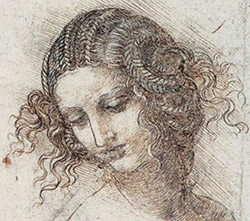
Two Downtown NY guitarists, both masterful players with unique approaches to their instrument, come together to present extraordinary and brilliant interpretations of an eclectic set of standards and compositions, titled for Claude Debussy's 1910 solo piano work, and including pieces by Hoagy Charmichael, Johnny Smith, Willard Robinson, and a number of traditional works.
Out of Stock
Quantity in Basket: None
Log In to use our Wish List
Shipping Weight: 3.00 units
Sample The Album:
Mary Halvorson-guitar
Bill Frisell-guitar
Click an artist name above to see in-stock items for that artist.
UPC: 702397402428
Label: Tzadik
Catalog ID: CD-TZA-4024
Squidco Product Code: 26165
Format: CD
Condition: New
Released: 2018
Country: USA
Packaging: Digipack
Recorded at Sear Soudn, in New York City, New York, on April 15th, 2018, by Jeremy Loucas.
"Mary Halvorson is one of the most acclaimed guitarists of her generation a virtuoso improviser, distinctive composer, arranger and a deep student of the jazz guitar. Here she joins forces with living legend Bill Frisell to pay tribute to Johnny Smith, a guitarist who has been a huge influence on them both. Performing 9 ballads associated with Smith and his classic composition Walk Dont Run, this is an essential CD of soulful guitar duets by two of the most beloved and original guitarists in modern jazz. A beautiful cd of ballads like you have never heard them before!"-Tzadik
"Composed in 1910 in the improbable key of Gb, Claude Debussy's "The Maid with the Flaxen Hair" is the seventh in his first book of Preludes for solo piano. The composer's inspiration was a mid-nineteenth century poem by Leconte de Lisle. The verse centers on a girl with beautiful hair, long eyelashes, and lips of cherry who is sitting in a bed of flowers - above her, a lark sings of love. The disembodied love is the narrator's; the ensuing kisses are only imagined. Debussy asks that this short prelude be played very calmly and in a sweetly expressive manner ("très calme aet doucement expressif"). Beginning with its memorable two bar phrase, played flute-like by the right hand alone, the prelude beautifully expresses a kind of wistful longing: sensuous but restrained, sophisticated given its warm harmonies, but simple in both its writing and emotional affect.
The piece was a favorite of jazz guitarist Johnny Smith, to whom Mary Halvorson's album Maid with the Flaxen Hair is dedicated. Smith recorded the Debussy at least three times (in 1956, 1962, and 1976). It was always a solo performance: versions can be found on The Johnny Smith Foursome and The Man with the Blue Guitar. Halvorson's sweetly expressive, "doucement expressif" homage to Smith is made up of a series of duets with guitarist Bill Frisell. Together, they play ten numbers associated with the guitarist, who recorded the tunes over a decade, starting in 1952.
Frisell may have prompted Halvorson's interest about Smith. Frisell studied with the guitarist in 1970 at the University of Northern Colorado. He wasn't impressed at the time, characterizing Smith's playing as "old fuddy duddy corny schmaltzy stuff." Frisell didn't even bother to go hear his famous teacher play live. He's repented since then, finding, as have many of us, more and more beauty in Smith's clearly conceived and perfectly executed lyrical playing. Frisell did copy down Smith's arrangement of the folk song "Black is the Color of My True Love's Hair": it's that arrangement that Halvorson plays "note for note" on this album. Moreover, she plays it on a guitar designed by Johnny Smith. Her performance is enchanting, simple to the point of starkness, withstanding Frisell's burbling and sometimes threatening accompaniment. Halvorson plays notes plucked so cleanly they feel like pin pricks. In fact, the precision of the performances from both guitarists is remarkable.
The session begins (appropriately) with Smith's one hit, "Moonlight in Vermont," which he recorded in 1952 and featured a Stan Getz solo that made the saxophonist famous. (The original is on Smith's 1956 Moonlight in Vermont, Roost.) "Maid with the Flaxen Hair" begins obliquely, with Halvorson playing a tremolo and Frisell single notes before the theme emerges from a kind of cloud of sound. This turns out to be the duo's introduction: they stop completely and then play Debussy's theme resonantly and out of tempo. The two then improvise intriguingly, with dark rumbles from one guitar and sharp pops of single notes from the other before they again subside and take up Debussy's melody. Smith's version of "Scarlet Ribbons" is gentle, a typical example of the fuddy duddy. Making use of a perky rhythm, oddly bent notes played seemingly a little out of phrase with each other, Halvorson and Frisell make the tune amusingly wacky, almost awkward - like the dance of a marionette. The duo is content to reproduce Smith's folksy side: they include a version of "Shenandoah."
For me, a highlight of this consistently beautiful disc is the pair's version of "In the Wee Small Hours of the Morning," a song that has been sung by vocalists as diverse as Frank Sinatra and Carly Simon, and recorded by jazzmen such as Gerry Mulligan, Curtis Fuller, and Wes Montgomery. (Johnny Hartman's is my favorite version.) More recently, Fred Hersch has recorded the tune. Here the duo plays the memorably haunting melody with the utmost respect, coming up with a passionate performance that is both precisely stated and rhythmically relaxed. The session ends with another of Smith's hits ... except that his version was not a popular success. The Ventures and then Chet Atkins recorded "Walk Don't Run," a number that convinced a lot of youngsters to pick up a guitar. Halvorson and Frisell play the tune brightly: somehow their version reminded me of a French cabaret song more than southern rock. This is a virtuoso version - light and danceable.
Every guitarist should listen carefully to this album. And then maybe some Johnny Smith."-Michael Ullman, ArtFuse
Get additional information at Art Fuse
Artist Biographies
• Show Bio for Mary Halvorson "One of improvised music's most in-demand guitarists, Mary Halvorson has been active in New York since 2002, following jazz studies at Wesleyan University and the New School. Critics have called her "a singular talent" (Lloyd Sachs, JazzTimes), "NYC's least-predictable improviser" (Howard Mandel, City Arts), "one of the most exciting and original guitarists in jazz-or otherwise" (Steve Dollar, Wall Street Journal), and "one of today's most formidable bandleaders" (Francis Davis, Village Voice). The Philadelphia City Paper's Shaun Brady adds, "Halvorson has been steadily reshaping the sound of jazz guitar in recent years with her elastic, sometimes-fluid, sometimes-shredding, wholly unique style." After three years of study with visionary composer and saxophonist Anthony Braxton, Ms. Halvorson became an active member of several of his bands, including his trio, septet and 12+1tet. To date, she appears on six of Mr. Braxton's recordings. Ms. Halvorson has also performed alongside iconic guitarist Marc Ribot, in his bands Sun Ship and The Young Philadelphians, and with the bassist Trevor Dunn in his Trio-Convulsant. Over the past decade she has worked with such diverse bandleaders as Tim Berne, Taylor Ho Bynum, Tomas Fujiwara, Ingrid Laubrock, Myra Melford, Jason Moran, Joe Morris, Tom Rainey and Mike Reed. As a bandleader and composer, one of Ms. Halvorson's primary outlets is her longstanding trio, featuring bassist John Hébert and drummer Ches Smith. Since their 2008 debut album, Dragon's Head, the band has been recognized as a rising star jazz band by Downbeat Magazine for five consecutive years. Ms. Halvorson's quintet, which adds trumpeter Jonathan Finlayson and alto saxophonist Jon Irabagon to the trio, has released two critically acclaimed albums on the Firehouse 12 label: Saturn Sings and Bending Bridges. Most recently she has added two additional band members-tenor saxophonist Ingrid Laubrock and trombonist Jacob Garchik-to form a septet, featured on her 2013 release Illusionary Sea. Ms. Halvorson also co-leads a longstanding chamber-jazz duo with violist Jessica Pavone, the avant-rock band People and the collective ensembles Thumbscrew and Secret Keeper." ^ Hide Bio for Mary Halvorson • Show Bio for Bill Frisell "Born in Baltimore, Bill Frisell played clarinet throughout his childhood in Denver, Colorado. His interest in guitar began with his exposure to pop music on the radio. Soon, the Chicago Blues became a passion through the work of Otis Rush, B.B. King, Paul Butterfield and Buddy Guy. In high school, he played in bands covering pop and soul classics, James Brown and other dance material. Later, Bill studied music at the University of Northern Colorado before attending Berklee College of Music in Boston where he studied with John Damian, Herb Pomeroy and Michael Gibbs. In 1978, Frisell moved for a year to Belgium where he concentrated on writing music. In this period, he toured with Michael Gibbs and first recorded with German bassist Eberhard Weber. Bill moved to the New York City area in 1979 and stayed until 1989. He now lives in Seattle. "When I was 16, I was listening to a lot of surfing music, a lot of English rock. Then I saw Wes Montgomery and somehow that kind of turned me around. Later, Jim Hall made a big impression on me and I took some lessons with him. I suppose I play the kind of harmonic things Jim would play but with a sound that comes from Jimi Hendrix", Frisell told Wire. Bill also lists Paul Motian, Thelonious Monk, Aaron Copland, Bob Dylan, Miles Davis and his teacher, Dale Bruning, as musical influences. Bill recorded his first two albums as a leader on ECM, both produced by Manfred Eicher. Subdued and lyrical in nature, In Line, the first of the ECM recordings, employed both electric and acoustic guitars in a series of solos (including some overdubbing) and duets with bassist Arild Andersen. Second was Rambler, featuring Kenny Wheeler, Bob Stewart, Jerome Harris and Paul Motian. About Rambler, Fanfare said: "Bill Frisell has built a little masterpiece here - not just a showcase for his own instrumental creativity (of which there is much in evidence), but a clever and poetic whole." Frisell's third album and last for ECM, Lookout For Hope, marked the recording debut of The Bill Frisell Band featuring Hank Roberts, Kermit Driscoll and Joey Baron. Produced by Lee Townsend, the album's diverse material - ranging from country swing to reggae, quasi-heavy metal and backbeat rock with a twist to Monk's "Hackensack" - nevertheless possessed the cohesive and unmistakable personality of a working band on to a sound of its own. High Fidelity called it "the fullest showing of Frisell's ability to date, especially his compositional range." The Chicago Tribune said, "Lookout For Hope offers one of the most hopeful signs that contemporary jazz can evolve with dignity, wit and charm." Before We Were Born, Frisell's debut recording for Nonesuch, featured three musical settings: Peter Scherer and Arto Lindsay produced, co-arranged and performed on three Frisell compositions. "Some Song and Dance", produced by Lee Townsend, is a suite of four pieces performed by Frisell's Band with a saxophone section featuring Julius Hemphill, Billy Drewes and Doug Wieselman. Frisell's "Hard Plains Drifter" is an extended work shaped, produced and arranged by John Zorn and played by the Frisell Band. The New York Times observed: "By following through on the implications of his unfettered sounds, Mr. Frisell has made his best album." Frisell's second Nonesuch album, Is That You?, features nine original Frisell compositions, one by producer Wayne Horvitz and two cover tunes - "Chain of Fools" and "Days of Wine and Roses". With Frisell playing guitars, bass, banjo, ukulele and even clarinet, Is That You? demonstrated with great clarity his pan-stylistic, yet strangely unified musical world. Musician called the album "a very personal vision, tearing down stylistic barriers with delicacy and sudden bursts of emotion." Frisell's third album for Nonesuch, Where in the World?, also produced by Wayne Horvitz, was the band's final recording with cellist Hank Roberts. The Philadelphia Inquirer said: "There is nothing standard about Where in the World?...Frisell is not only a master of an unusual guitar-based sonic tapestry, he's one of the few composers capable of writing for an interactive ensemble." Have a Little Faith, Frisell's 1992 Nonesuch recording, was something of a tribute album. Here, he interpreted the music of a number of American composers whose music had inspired him - Aaron Copland, Muddy Waters, Bob Dylan, John Hiatt, Sonny Rollins, Stephen Foster, Charles Ives, Victor Young, Madonna and John Philip Sousa. The extent to which Bill has made this music his own demonstrates the completeness of its link to his own compositional approach. For this recording Frisell's Band was augmented by Don Byron (clarinet, bass clarinet) and Guy Klucevsek (accordion) and produced by Wayne Horvitz. The San Francisco Bay Guardian said, "Frisell treats each piece with typical earnestness and lyricism, breaking into wrenching distortion and stormy group improv only after breathing the original full of a softly glowing life." This Land, Frisell's fifth Nonesuch recording, consists of all original material with the band and a horn section of Don Byron (clarinets), Billy Drewes (alto saxophone) and Curtis Fowlkes (trombone). Produced by Lee Townsend, the album readily displays the connection between Frisell's own writing and the composers' work to whom he pays tribute on his previous Have a Little Faith. From the standpoint of synthesizing his celebrated composing and arranging talents with exuberant improvising and spirited band interaction, it is a landmark recording, which prompted this description in Rolling Stone: "Strange meetings of the mysterious and the earthy, the melancholy and the giddy, make perfect sense by Frisell's deliciously warped way of thinking. The warpage is catching on and not a moment too soon." In 1994, Frisell recorded a pair of recordings of music that he composed for three silent Buster Keaton films - The High Sign, One Week and Go West. The band premiered this music along with the films to a spirited and sold-out audience at St. Ann's in Brooklyn in May '93. The pairing displayed a natural affinity between work of both artists. Their works together possess an undeniable sense of adventure and penchant for the unexpected that only enhances the warmth and humanity of both the musical elements and the films themselves. It has proven to be the rare case where the whole truly transcends the sum of its parts. Of the "Go West" recording , Billboard noted: "With this set of music for the classic Buster Keaton film, "Go West," Bill Frisell has crafted one of his finest, most evocative albums. Evincing his best qualities as both guitarist and composer, he harvests melancholy Americana from deceptively modest, episodic themes. Coloring the scenes with acoustic as well as his trademark electric, Frisell produces strangely cinematic motifs on guitar, and his rhythm cohorts - longtime bassist Kermit Driscoll and drummer Joey Baron - provide abundant narrative drive." Both albums were produced by Lee Townsend. Frisell's success with the Keaton films has led him to other film-related projects. He scored the music for Gary Larson's "Tales From the Far Side" animated television special and Daniele Luchetti's Italian feature film, "La Scuola." Some of the music from these projects has been adapted and recorded by Frisell on Quartet, Frisell's Nonesuch recording released in April '96. The formation of the Quartet, with Ron Miles (trumpet), Eyvind Kang (violin) and Curtis Fowlkes (trombone), was a new working band for Frisell, who had worked with the telepathic rhythm combination of Kermit Driscoll and Joey Baron for nearly ten years. Frisell told Down Beat: "It's so different from the traditional guitar-bass-drum thing, even though Joey Baron, Kermit Driscoll and I never played like a typical jazz trio. This group, with violin and brass, can play an orchestral range of sounds. It's gigantic. It's given me a chance to write and arrange in an even bigger way." Quartet, was quickly hailed by critics. The New York Times declared: "Quartet may be his masterpiece." Nonesuch released Nashville in April of 1997. Recorded in Nashville and produced by Wayne Horvitz with members of Allison Krauss' Union Station band - mandolin player Adam Steffey and banjo player Ron Block - the project also features her brother and Lyle Lovett's bass player Viktor Krauss, dobro great Jerry Douglas, vocalist Robin Holcomb and Pat Bergeson on harmonica. "Comprising acoustic instrumental folk tunes with unpredictable stylistic accents, Nashville boasts a dreamy, seductive grandeur. The backing mandolin/dobro/bass interplay simmers - Frisell himself picks and strings and most of all floats, laying out liquid tones that settle over the melodies like heat haze on a swampy, swimmerless lake." wrote the LA Weekly. The Atlanta Journal-Constitution summed it up simply as, "Frisell's nod to Nashville is Americana at its best." In January of 1998 Frisell's next project Gone, Just Like A Train came out. On this exceptionally melodic and rhythmically vital instrumental collection of original compositions, Frisell is joined by Viktor Krauss and by Jim Keltner, all star drummer of choice for Bob Dylan, Ry Cooder, T-Bone Burnett, George Harrison, John Lennon and The Traveling Wilburys. The Rocket in Seattle wrote that "Frisell has managed to pull together an ad hoc super trio of musicians from drastically different pasts, and they manage to assemble a machine of colossal proportions: part skewered jazz, part roadside folk blues, part gritty rock..Gone presents Frisell at a creative apex. He's integrated a thoroughly unique understanding of so much American Music. And it's all gift-wrapped in a lean, unimposing trio framework that conveys sheer genius in a million directions. It flies with shining power." Produced by Lee Townsend, the album proved to be one of Frisell's most celebrated and popular to date. Good Dog, Happy Man, brims full of Frisell's shimmering original compositions. Here he is reunited with the Gone Just Like a Train rhythm section of Viktor Krauss on bass and Jim Keltner on drums and joined by Wayne Horvitz on Hammond B3 organ, multi-instrumentalist/slide guitarist Greg Leisz (known for his work with Joni Mitchell, K.D. Lang, Emmy Lou Harris, Beck and Jimmie Dale Gilmore, among others) plus special guest Ry Cooder on the traditional folk song "Shenendoah". Produced by Lee Townsend, Good Dog, Happy Man celebrates Frisell's emergence as a composer who has created a genre unto himself. The Philadelphia Inquirer wrote: "The 12 breathtakingly beautiful originals on Good Dog, Happy Man resist every obvious classification. Frisell's been doing the undefinable for years - creating revelatory music from threadbare accompaniment; finding vital contexts for jazz improvisation that are worlds away from bebop; burying shiny nuggets of melody beneath a gauzy lace-like surface. Frisell manages to evoke big worlds with stark single notes and foreboding sustained tones, conjuring a richly textured atmosphere that is both understated and undeniable. No matter what you call it." " ^ Hide Bio for Bill Frisell
4/9/2025
Have a better biography or biography source? Please Contact Us so that we can update this biography.
4/9/2025
Have a better biography or biography source? Please Contact Us so that we can update this biography.
Track Listing:
1. Moonlight in Vermont 6:03
2. The Maid with the Flaxen Hair 8:12
3. Scarlet Ribbons for Her Hair 3:16
4. In the Wee Small Hours of the Morning 4:34
5. Shenandoah 3:31
6. The Nearness of You 4:27
7. Black is the Color of my True Love's Hair 3:26
8. Old Folks 3:19
9. Misty 2:56
10. Walk Don't Run 2:28
Tzadik
Improvised Music
Jazz
Free Improvisation
NY Downtown & Metropolitan Jazz/Improv
Duo Recordings
Guitarists, &c.
Staff Picks & Recommended Items
Jazz & Improvisation Based on Compositions
Search for other titles on the label:
Tzadik.


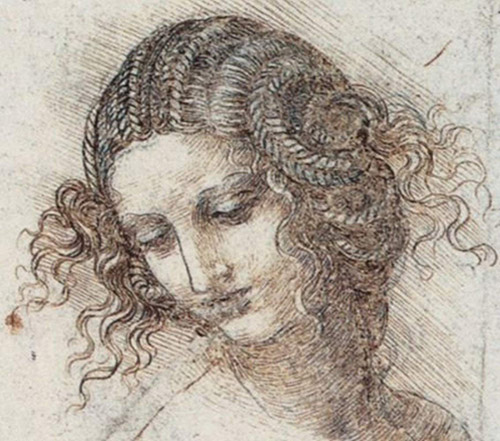
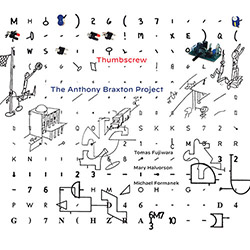

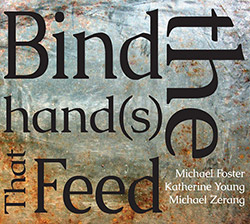

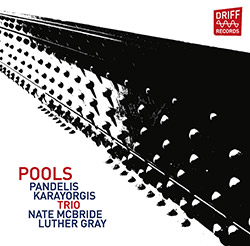

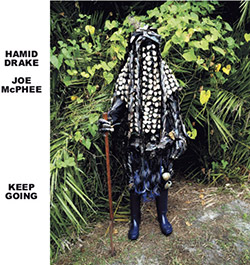
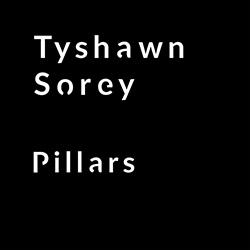
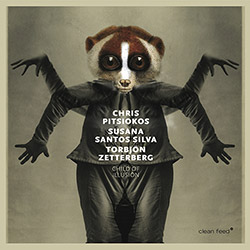
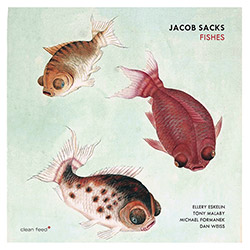

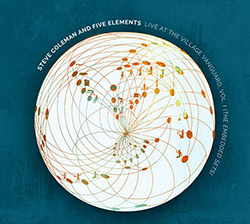

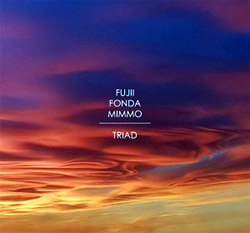





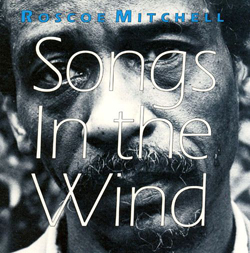



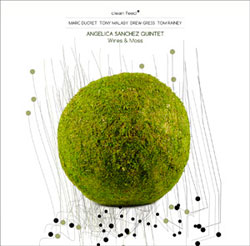
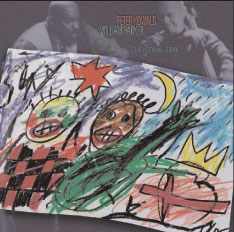



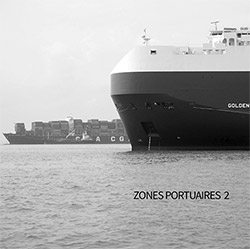
![111 (Michelle / Villamil): Live at Opus 40 [CASSETTE]](https://www.teuthida.com/productImages/misc4/35986.jpg)
![del Pino, Francisco / Charlotte Mundy: The Sea [CASSETTE]](https://www.teuthida.com/productImages/misc4/35987.jpg)

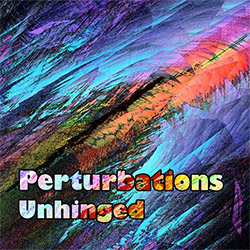

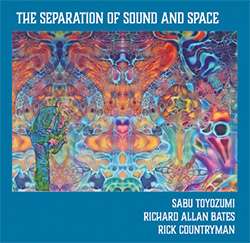


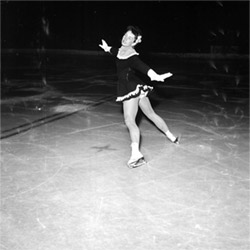
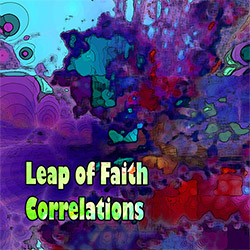

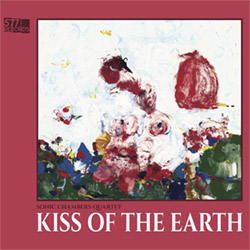

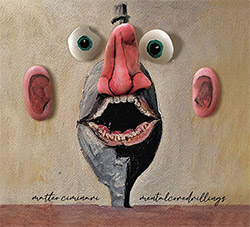
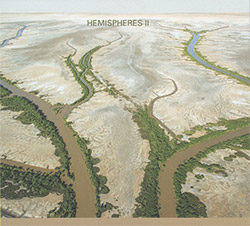
![Niblock, Phill / Anna Clementi / Thomas Stern: Zound Delta 2 [VINYL]](https://www.teuthida.com/productImages/misc4/34623.jpg)
![Yoko, Ono / The Great Learning Orchestra: Selected Recordings From Grapefruit [2 CDs]](https://www.teuthida.com/productImages/misc4/35841.jpg)

![Brotzmann, Peter / John Edwards / Steve Noble / Jason Adasiewicz: The Quartet [2 CDs]](https://www.teuthida.com/productImages/misc4/35975.jpg)
![Brotzmann, Peter / John Edwards / Steve Noble / Jason Adasiewicz: The Quartet [VINYL 2 LPs]](https://www.teuthida.com/productImages/misc4/35976.jpg)
![Thomas, Pat: The Solar Model of Ibn-Al Shatir [VINYL]](https://www.teuthida.com/productImages/misc4/36044.jpg)
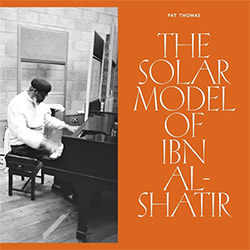



![Rodrigues, Ernesto / Nuno Torres / Guilherme Rodrigues: Whispers In The Moonlight - In Seven Movements [2CDs]](https://www.teuthida.com/productImages/misc4/35765.jpg)



![Cocks, Laura: FATHM [VINYL]](https://www.teuthida.com/productImages/misc4/36055.jpg)













![Schindler, Udo / Sandy Ewen / Damon Smith: Munich Sound Studies Vols. 4, 5 & 6 [3 CDs]](https://www.teuthida.com/productImages/misc4/35966.jpg)
![Turbulence Orchestra & Sub-Units: Smear Out the Difficulties (Double Live) [2 CDs]](https://www.teuthida.com/productImages/misc4/36048.jpg)

![Myers, David Lee : Tin Drop Tear [BOOK w/ DOWNLOAD]](https://www.teuthida.com/productImages/misc4/36030.jpg)

![Ackerley / Prymek / Turner: All Hope With Sleeping Minds [CASSETTE]](https://www.teuthida.com/productImages/misc4/35950.jpg)








![Olencki, Weston : Pearls Ground Down To Powder [VINYL]](https://www.teuthida.com/productImages/misc4/35956.jpg)
![Myers, David Lee: Oculus [2CDs]](https://www.teuthida.com/productImages/misc4/35857.jpg)


![dustsceawung: dustsceawung [CASSETTE w/ Download]](https://www.teuthida.com/productImages/misc4/35753.jpg)




![Halls of the Machine: Atmospheres For Lovers And Sleepers [CASSETTE w/ DOWNLOAD]](https://www.teuthida.com/productImages/misc4/35806.jpg)











![Zorn, John / JACK Quartet: The Complete String Quartets [2 CDs]](https://www.teuthida.com/productImages/misc4/35609.jpg)

![Lonsdale, Eden: Dawnings [2 CDs]](https://www.teuthida.com/productImages/misc4/35480.jpg)







![Sanna, Claudio: Compositori Sardi Contemporanei II [2 CDs]](https://www.teuthida.com/productImages/misc4/35317.jpg)







![Zurria, Manuel: Fame di Vento [3 CDs]](https://www.teuthida.com/productImages/misc4/35167.jpg)

![Electric Bird Noise / Derek Roddy: 8-10-22 [CD EP]](https://www.teuthida.com/productImages/misc4/35970.jpg)








![Elephant9 : Mythical River [VINYL]](https://www.teuthida.com/productImages/misc4/34624.jpg)



![Elephant9 with Terje Rypdal: Catching Fire [VINYL 2 LPs]](https://www.teuthida.com/productImages/misc4/35355.jpg)
![Deerlady (Obomsawin, Mali / Magdalena Abrego): Greatest Hits [VINYL]](https://www.teuthida.com/productImages/misc4/34876.jpg)







![Surplus 1980: Illusion of Consistency [CD]](https://www.teuthida.com/productImages/misc4/35069.jpg)
![Staiano, Moe: Away Towards the Light [VINYL + DOWNLOAD]](https://www.teuthida.com/productImages/misc4/35037.jpg)



![Caveira (Gomes / Sousa / Abras / Ferrandini): Ficar Vivo [VINYL]](https://www.teuthida.com/productImages/misc4/34643.jpg)
![Coley, Byron: Dating Tips for Touring Bands [VINYL]](https://www.teuthida.com/productImages/misc4/17906.jpg)

![Lost Kisses: My Life is Sad & Funny [DVD]](https://www.teuthida.com/productImages/misc4/lostKissesDVD.jpg)